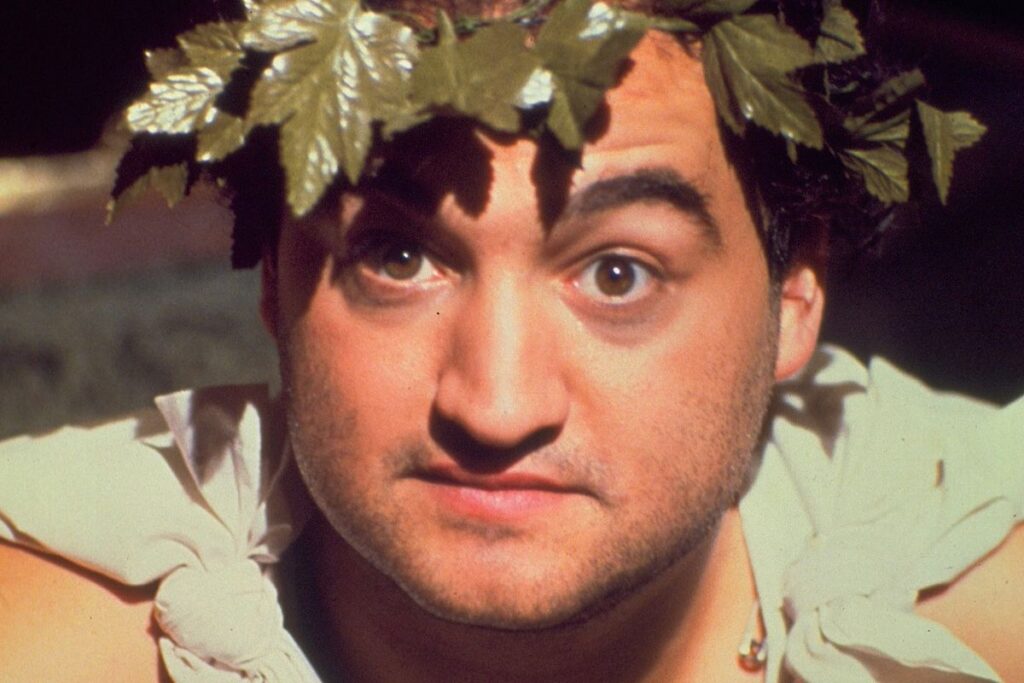Read also:
How to Watch FX Live Without CableHow To Watch AMC Without CableHow to Watch ABC Without CableHow to Watch Paramount Network Without CableThe latest cinematic attempt to understand one of comedy’s most tragic success stories celebrates its subject’s life until it can’t any longer.
(This review is part of our combined coverage of AFI Fest 2020 and the 2020 Chicago International Film Festival.)
Hollywood is chock-a-block with tales of rising stars who lived fast and died young — in the world of comedy, there’s no greater case study for that tragic tale than the late, great John Belushi. Whether on stage at Second City or tearing up the furniture at Studio 8H during his historic tenure on Saturday Night Live, Belushi was a one-of-a-kind madman, a melancholic force of nature whose manic energy belied tremendous insecurity and the literal and figurative addictions that came with unexpected stardom.
While most retellings of the man’s life (from oral histories of SNL to 1989’s film adaptation of the shaggy Bob Woodward book Wired) focus on the circumstances of his death, R.J. Cutler‘s Belushi strives to understand the man’s life, from the yearning expectations of childhood to his relationship with his wife Judith Belushi Pisano. But while Cutler’s approach is charming and similarly fast-paced to his subject, it can’t quite escape the sameyness of its slick, standard presentation.
Perhaps that’s a casualty of the sheer familiarity of its story: if you’re the kind of person interested in watching Belushi in the first place, you likely know the broad strokes. There’s the frustrated suburban childhood, the outsized early performances in high school and college, his early collaborations with National Lampoon that would grow into the main cast for Saturday Night Live and the stardom that would follow, Animal House, Blues Brothers, drug addiction, death. Try as it might, the doc doesn’t ultimately give us many new insights to fill in the blanks of that story; we may know more of the details, but you don’t come away with a brand-new understanding of the man.

To its credit, Cutler smartly focuses on Pisano’s relationship with John as a spine, much of the doc culled from recorded interviews from friends, colleagues, and fellow stars she conducted in the immediate wake of Belushi’s death (used for her 2005 oral history, Belushi). Whether through her own recollections, or dramatized letters and journals from John himself (narrated by Bill Hader), Cutler suitably impresses upon us the equalizing role she (and, to a lesser extent, best friend Dan Aykroyd) had on his volatile personality.
These conversations, whether with brother Jim or similarly-mourned comic legends like Harold Ramis, Penny Marshall, and Carrie Fisher, feel raw and revealing, viewing Belushi from the perspective of the people who knew him most. One gets the impression he was a man as beloved as he was endured — that rare figure with the talent to match his outsized ego. (No wonder he clashed so hard with Chevy Chase on that first season of SNL.) Belushi doesn’t rend its garments and weep over the death of its subject; it’s celebratory for as long as it can be, and for that, it should be credited.
Similar to fellow posthumous SNL cast member doc Love, Gilda, there’s little about Belushi that rattles the firmament of these kinds of biopic docs. Presentationally, it does the expected, from the lens-flared archival photos to the aforementioned “highlight pertinent passages in personal journals” trick. What can’t be captured in existing footage — Belushi’s courtship of Judith, the beginnings of his cocaine addiction — is brought to life with admittedly-vivid animation, its blocky, modernist approach easily the doc’s most appealing visual component.
One gets the impression he was a man as beloved as he was endured — that rare figure with the talent to match his outsized ego.
Of course, we get the requisite ‘play the hits’ clips from Animal House, SNL, and others, and it’s always nice to see Bluto stealing scenes or The Blue Brothers’ outsized police-car pileup. But they often feel obligatory, and I personally wish we’d gotten to spend more time with his later, failed grasps at movie superstardom (1941, for instance, is only given a passing mention). But even so, Cutler manages to places those clips within the context of Belushi’s behind-the-scenes turmoil, allowing Aykroyd and others to remark when the Belushi you’re seeing on screen was moments away from a total drug-fueled haze.
Despite its familiarity, Belushi still manages a workmanlike understanding of one of comedy’s greatest minds and most transparent tragedies. It may not teach you much you didn’t already know, but it fills in a few humanistic blanks you might not know if you’ve only seen him on screen. And try as it might to keep the focus on the happier elements of Belushi’s life, it’s in the final act (when the warning signs start to creep in and Cutler superimposes footage of the coroner entering the Chateau Marmont that fateful day in 1982 to a Belushi-sung cover of Randy Newman’s “Guilty”) that the doc finally makes an impact.
Belushi played as the opening night presentation of the Chicago International Film Festival, and comes to Showtime November 22nd.